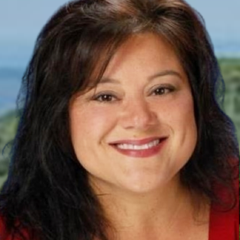A 1031 tax exchange allows investors to sell an investment property and “exchange” the profit or gain into the purchase of their next investment property. (In North Carolina, the 1031 Tax Deferred Exchange is also known as a Like-Kind Exchange).
Understanding all the requirements of Section 1031 of the Internal Revenue Service (IRS) before you cash in one investment for another is important. This way you can follow the strict timeline, rules, and requirements needed to render your exchange tax-free.
What is a 1031 Exchange in North Carolina?
A successful 1031 Tax Exchange defers paying the taxes on the capital gains from the sale of a property. In simple terms, you’re swapping one property for another in the same or similar category and deferring capital gains tax.
While it sounds simple, this can be tricky in a tough buyer’s market where there are multiple offers on properties and/or inspections, repairs, and appraisals can be delayed. You will need the help of an experienced real estate agent to manage the many facets of selling and buying through a 1031 exchange.
What Properties are Eligible for 1030 Exchanges?
The IRS code specifies that your use of the property dictates whether it qualifies for a 1031 exchange. Your vacation or second home must be used for productive business, trade, and investment purposes in order to qualify for the deferment.
The good news is that you may identify up to 3 properties. You may purchase one, two, or three of those identified properties in the exchange.
Vacation and Second Home Eligibility
If your vacation home or second property property is used primarily for personal use it is ineligible for a 1031 exchange.
A few IRS rules to guide you for qualification include:
- Property must be owned for 24 months prior to selling
- in each of the 12-month periods prior to selling, personal use of the dwelling unit does not exceed the greater of 14 days or 10 percent of the number of days during the 12-month period that the dwelling unit is rented at fair rental value.
1031 Exchange Timing Rules
It’s also important to note that strict IRS 1031 Exchange timing rules dictate that the replacement property must be of equal or greater value than the property being sold. One hundred percent of the proceeds from your sale of property one must be reinvested into the purchase of property two.
If the gain is not 100% reinvested, you will pay capital gains on the entire applicable capital gain -ouch! Therefore, this is not a good tactic for downsizing.
You also must know that you’re on the clock. You have:
- 45 days from the closing of your investment property to identify the next property
- 180- days from the closing of property one to the close of property two – the identified property.
If you miss either of these dates, you will be responsible for paying the full capital gains tax on the gains from selling property one! Use the link below to see the full 1031 exchange timeline.
Like-Kind Exchanges
It is important to understand what constitutes a like-kind exchange when identifying your replacement property purchase. As the name implies, the property being purchased must be the same kind of property that is being sold.
However, like-kind properties need not be exactly the same. Commercial, residential, undeveloped land, and developed properties are all like-kind to each other, so each is exchangeable with each.
In general, both must be business, productively used in a trade, or an investment. For example, farmland can be exchanged for farmland.
An apartment building can be exchanged for another, multi-unit rental building. Further, all these property types can even count as like-kind to fractional ownership interests in Delaware statutory trusts.
200% and 95% Rules
If you have more than 3 properties you want to consider, it is possible to complete the exchange through the 200% and 95% rules.
- The 200% rule allows you to identify more than three properties if their combined value does not exceed 200% of the relinquished property’s value.
- The 95% rule says you may identify any number of properties with no reference to the sale price of the relinquished property, provided you actually acquire and close on 95% of the value identified. Know that if you acquire less than 95%, then the entire exchange will be considered invalid.
Once you find that replacement property, it is identified on a document, signed by you, with a clear and recognizable description of the property(s). For example, it may include the full address, legal description, or distinguishable name. For example, you couldn’t just identify a development or an area. You must include the exact address.
1031 Qualified Intermediary
One of the rules of a 1031 exchange is that the transaction must be managed by a Qualified Intermediary. In North Carolina, this may be a specific 1031 exchange company or an attorney.
A qualified intermediary is a person or company that ensures the investor follows the rules of the 1031 exchange. In a 1031 exchange, the intermediary ensures all deadlines are met and that the investor does not have access to the proceeds from the original sale.
One intermediary holds the funds, while a second handles the closing of the like-kind, replacement property.
Cash Boot Financial Gains
A cash boot is a financial gain resulting from a like-kind exchange. Cash boots are taxable.
As an example: You own a $300,000 investment property with a tax value of $260,000, meaning that you have a $40,000 capital gain.
You exchange your $300,000 property to purchase a $250,000 property. Therefore, a taxable cash boot of $50,000 is realized. Subtract the $40,000 capital gain from the relinquished property from the $50,000 cash boot.
The remaining $10,000 can be deferred. In this scenario, all the equity from the relinquished property has not been used to purchase the replacement property. The amount diverted from the replacement property will result in a taxable cash boot.
Passive Income Options with Delaware Statutory Trust
Up until recently, 1031 exchanges were a tool that allowed sellers to defer taxes on the sale of investment properties if they bought another, like property, with the proceeds and within a strict deadline. The IRS recently modified the 1031 Exchange (Revenue Ruling 2004-86) to allow a new, passive income option called the “DST” (Delaware Statutory Trust).
Rather than purchasing another investment property to self-manage, investors can now exchange their shares into shares of a professionally managed portfolio of real estate properties, similar to a Real Estate Investment Trust (REIT). The IRS tax code may now allow accredited investors to withdraw up to 86% of the equity from their sales proceeds for medical expenses, retirement, or even travel without paying capital gains tax!
With this DST, exchangers can not only defer paying taxes on the gains from the property sale, but they can also earn interest on those gains via the portfolio. Only a handful of financial management companies or “sponsors” are offering this option so please speak with a licensed Financial Advisor if you are interested in finding out more about DSTs.
Filing a 1031 Tax Deferred Exchange in North Carolina
If you need equity from your investment property in North Carolina, you may consider selling it and utilizing some or most of the funds by filing a 1031 tax-deferred exchange.
Be sure to engage the services of an experienced agent who knows the ins and outs of 1031 exchanges and Second Home/Investment properties!


